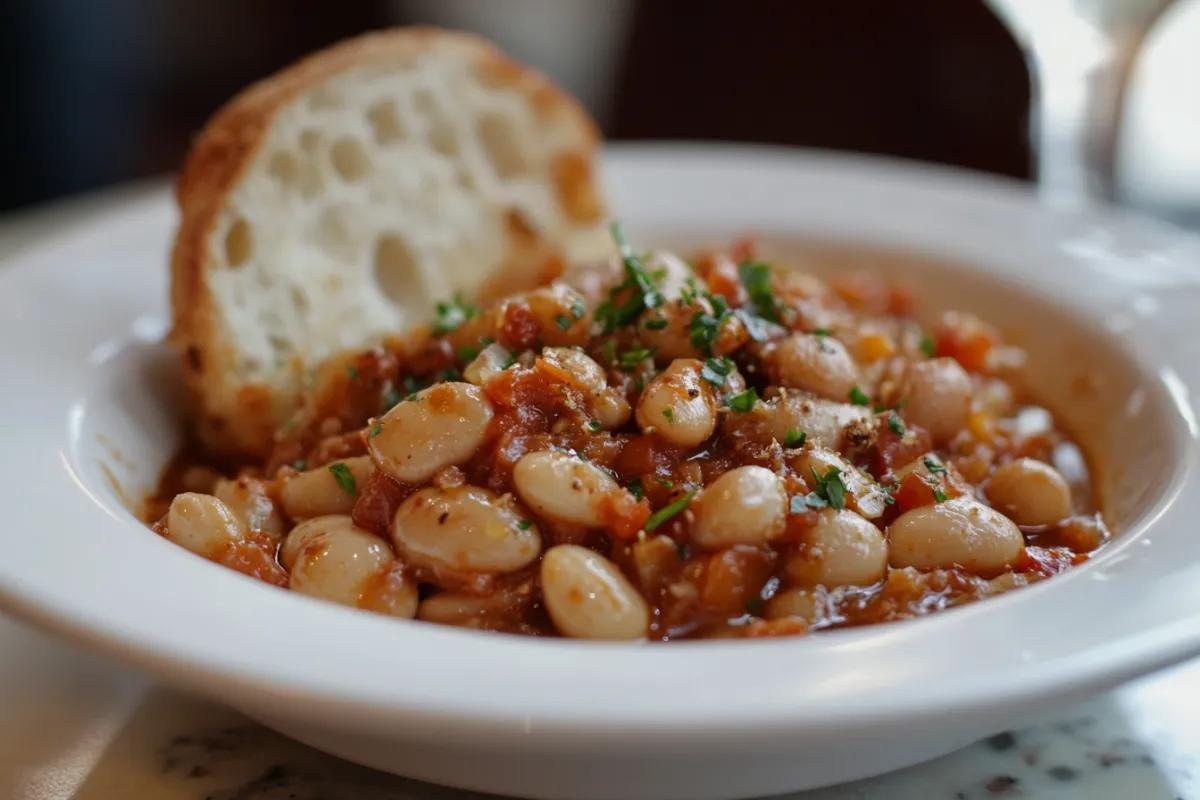What Are Great Northern Beans Good For?
Great northern beans are one of the most popular and versatile legumes used in kitchens around the world. Their mild flavor, creamy texture, and ability to absorb the flavors of the other ingredients make them a staple in many recipes. Beyond their culinary uses, great northern beans are packed with nutritional benefits, making them a valuable addition to any diet. But what exactly are these beans good for? In this comprehensive guide, we’ll explore the health benefits, nutritional value, and various ways to cook and use great northern beans in your meals.
1. Nutritional Profile of Great Northern Beans
One of the reasons great northern beans are so beneficial is their impressive nutritional content. They are a powerhouse of protein, fiber, and essential vitamins and minerals, making them an excellent food for maintaining health and supporting various bodily functions.
Macronutrients
Great northern beans are low in calories but high in essential nutrients that are vital for everyday health.
- Calories: One cup of cooked great northern beans contains around 209 calories.
- Protein: These beans are an excellent source of plant-based protein, with about 14.7 grams of protein per cup.
- Fiber: One of the standout benefits of these beans is their high fiber content—around 12.4 grams per cup—which promotes digestive health and supports weight management.
- Carbohydrates: A single serving provides about 38 grams of complex carbohydrates, which supply the body with sustained energy.
Micronutrients
Great northern beans are also rich in important vitamins and minerals that support many bodily functions.
- Iron: 3.6 milligrams per cup, helping to support healthy blood and prevent anemia.
- Potassium: With 710 milligrams per cup, they help regulate blood pressure and support heart function.
- Magnesium: Each serving provides 76 milligrams, which plays a role in muscle and nerve function, as well as bone health.
- Folate: These beans are an excellent source of folate, with 90 micrograms per cup. Folate is essential for DNA synthesis and cell division, making it particularly important for pregnant women.
For more details on the nutritional benefits of great northern beans, visit our Great Northern Beans Nutrition, Benefits, and Recipes.
2. Health Benefits of Great Northern Beans
Great northern beans are not just good for adding flavor and texture to your meals—they also offer several important health benefits. Whether you’re looking to improve heart health, manage weight, or regulate blood sugar levels, these beans can be an essential part of a healthy diet.
1. Promoting Digestive Health
The high fiber content in great northern beans makes them a great choice for promoting digestive health. Fiber plays a key role in keeping the digestive system functioning properly by promoting regular bowel movements and preventing constipation. Additionally, fiber supports a healthy gut microbiome by feeding the beneficial bacteria in your intestines. Both soluble and insoluble fibers present in these beans work together to support overall gut health.
- Soluble fiber forms a gel-like substance in the gut, helping to slow digestion and improve nutrient absorption.
- Insoluble fiber adds bulk to stool, making it easier to pass and reducing the likelihood of digestive disorders like diverticulosis.
2. Supporting Heart Health
One of the most significant benefits of great northern beans is their ability to support heart health. They are rich in dietary fiber, which helps lower LDL (bad) cholesterol levels in the blood. This, in turn, reduces the risk of developing heart disease. Furthermore, the beans’ potassium and magnesium content plays a role in regulating blood pressure, which is another important factor in heart health. Regular consumption of great northern beans can lead to a healthier cardiovascular system.
For more heart-healthy recipes, check out our Ultimate Guide to Beans.
3. Weight Management
If you’re looking to maintain or lose weight, great northern beans can be a valuable addition to your diet. Their high fiber and protein content work together to keep you feeling full and satisfied for longer periods, which can help reduce overall calorie intake. Fiber slows the digestion process, preventing blood sugar spikes and crashes that can lead to overeating. Additionally, beans are low in fat, making them a nutrient-dense option for those looking to manage their weight.
4. Managing Blood Sugar Levels
The low glycemic index (GI) of great northern beans makes them an excellent food choice for individuals managing diabetes or trying to regulate their blood sugar levels. Foods with a low GI are digested and absorbed more slowly, which helps to prevent sudden spikes in blood sugar. The fiber in the beans also helps regulate glucose levels by slowing the release of sugar into the bloodstream. As a result, great northern beans are highly recommended for people with diabetes or those at risk of developing the condition.
5. Building Muscle and Repairing Tissue
As a plant-based source of protein, great northern beans are ideal for vegetarians and vegans. Protein is essential for muscle repair, growth, and overall tissue maintenance. With 14.7 grams of protein per cup, these beans can help meet daily protein requirements, making them an excellent alternative to animal-based proteins. Incorporating great northern beans into meals can support muscle recovery, particularly after exercise or injury.
3. Culinary Uses of Great Northern Beans
Beyond their impressive health benefits, great northern beans are extremely versatile in the kitchen. Their mild flavor and creamy texture make them a favorite ingredient in many different types of dishes.
1. Versatile Ingredient in Cooking
Great northern beans are widely used in soups, stews, and casseroles, where their ability to absorb flavors makes them an excellent addition to hearty dishes. Their neutral flavor also allows them to be used in cold dishes like salads or spreads.
- White chili: Great northern beans are often used in white chili recipes, where they complement the flavors of chicken and green chiles.
- Bean soup: These beans are commonly used in soups, providing texture and thickness to the broth.
- Baked beans: Their mild flavor and creamy texture make them ideal for baked beans, which are typically cooked with a sweet or savory sauce.
2. Substituting Great Northern Beans
Great northern beans can be substituted for other types of white beans, such as navy beans or cannellini beans, in most recipes. However, their size and texture may affect the final dish. For instance, cannellini beans are larger and firmer, making them a better option for salads, while navy beans are smaller and denser, making them ideal for baked dishes.
For more ideas on how to use great northern beans in your cooking, visit our Great Northern Beans Recipes page.
4. Cooking and Preparation Tips
Cooking great northern beans from scratch is a simple process, whether you use dried beans or canned beans. Below are some helpful tips on how to properly prepare and cook them.
1. Preparing Dried Great Northern Beans
When using dried beans, soaking them is essential to reduce cooking time and improve their texture.
- Overnight soak: Soak the beans in water for 8-12 hours, or overnight. This allows the beans to rehydrate and reduces cooking time.
- Quick soak: For a faster option, bring the beans to a boil for 2 minutes, then let them sit in the hot water for 1 hour before cooking.
Once soaked, drain and rinse the beans, then cook them in fresh water for about 45 minutes to an hour until they are tender. You can add aromatics like garlic, bay leaves, or onion to enhance the flavor while they cook.
2. Using Canned Great Northern Beans
Canned beans are a convenient option when you don’t have time to cook dried beans. Simply drain and rinse the beans to remove excess sodium before using them in your recipes. Canned beans can be added directly to salads, soups, or stews without additional cooking.
For more preparation tips, explore our Ultimate Guide to Cooking Beans.
5. Frequently Asked Questions (FAQs)
Are great northern beans a good source of protein?
Yes, great northern beans are an excellent source of plant-based protein, making them ideal for vegetarians and vegans. With around 14.7 grams of protein per cup, they can help meet your daily protein needs.
Can I substitute navy beans for great northern beans?
Yes, navy beans can be used as a substitute for great northern beans in most recipes. However, navy beans are smaller and denser, which may result in a different texture in your dish.
Are great northern beans healthy for heart patients?
Absolutely. Great northern beans are high in fiber and low in fat, both of which are important for maintaining heart health. They help lower cholesterol levels and regulate blood pressure, making them a heart-healthy option.
How long does it take to cook great northern beans?
When soaked overnight, great northern beans take about 45 minutes to 1 hour to cook. If using canned beans, they are already cooked and only need to be heated before serving.
For more insights into alternative names for great northern beans, check out Is There Another Name for Great Northern Beans?.
6. Conclusion
In conclusion, great northern beans are an incredibly nutritious and versatile food that can be easily incorporated into various types of diets. Whether you’re looking to improve your digestive health, manage your weight, or maintain healthy blood sugar levels, these beans are an excellent choice. Their mild flavor and creamy texture make them perfect for a wide range of dishes, from soups and stews to salads and casseroles.
By incorporating great northern beans into your diet, you can enjoy their numerous health benefits while also adding flavor and texture to your meals. For more information on cooking with great northern beans, don’t forget to visit our Ultimate Guide to Beans and Great Northern Beans Nutrition, Benefits, and Recipes.

